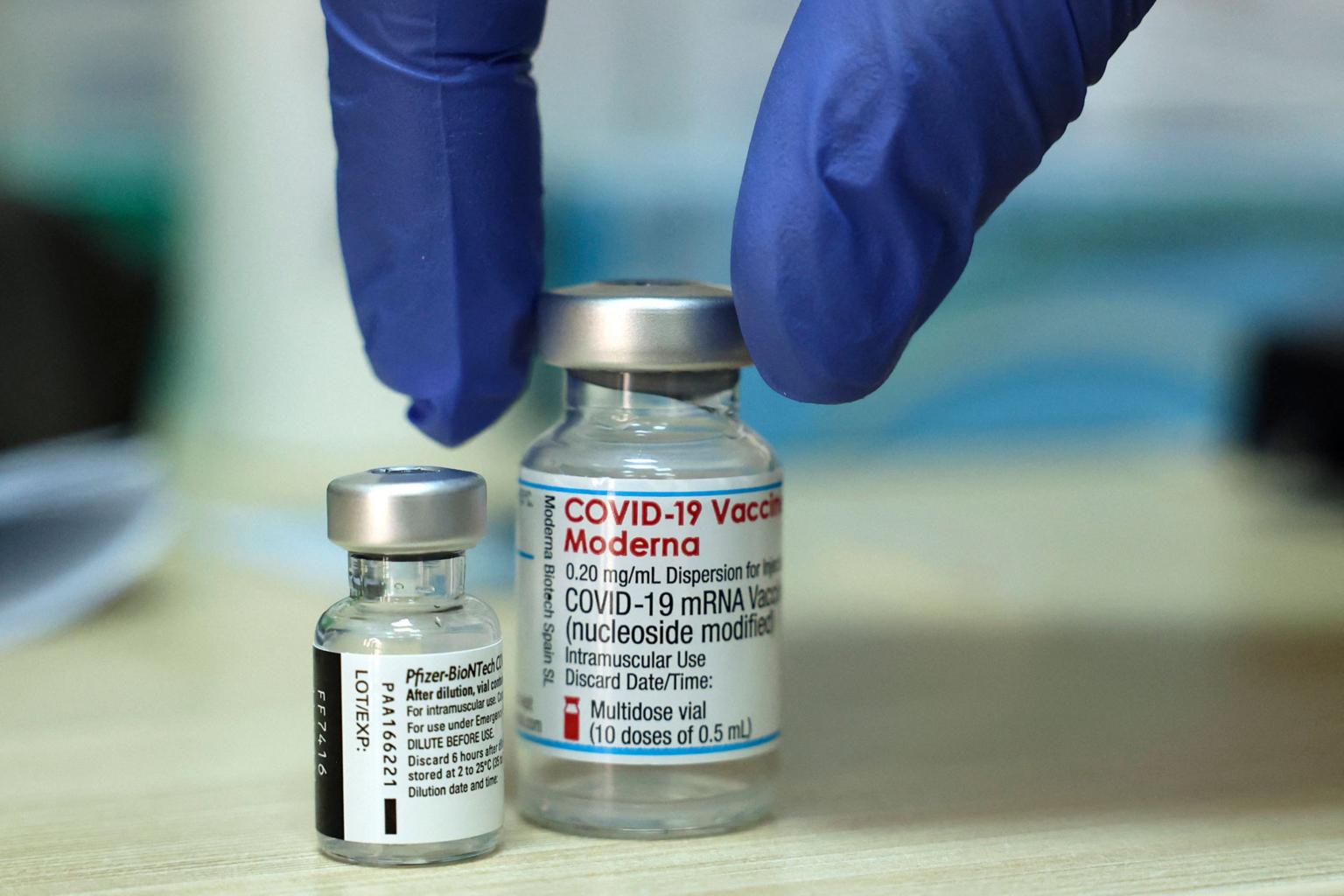mRNA Covid-19 vaccines not linked to miscarriage: Study
Sign up now: Get ST's newsletters delivered to your inbox

Researchers found that the risk of miscarriage within a month after vaccination was no different than among those who did not get vaccinated.
PHOTO: AFP
WASHINGTON (REUTERS) - Miscarriages do not occur more often in pregnant women who receive an mRNA vaccine against Covid-19, according to a new study.
Researchers analysed data from eight US health systems on 105,446 women who were between 6 and 19 weeks into their pregnancies.
Among them, 7.8 per cent had received at least one dose of the Pfizer/BioNTech vaccine and 6 per cent had received at least one shot of Moderna's.
Overall, 13,160 women suffered miscarriages, but the risk within a month after vaccination was no different than among those who did not get vaccinated, according to a report published on Sept 8 in JAMA.
The researchers acknowledge that they may have been missing some data. For example, they did not know the women's previous pregnancy histories. Still, they conclude, their findings will help doctors counsel pregnant women in their decision-making about the vaccines.
Meanwhile, all three Covid-19 vaccines in use in the United States are effective at preventing hospitalisations and urgent or emergency care visits caused by the Delta variant of the coronavirus, although Moderna's shots appear to be most effective, according to national data collected in June, July and August as Delta became predominant.
Researchers with the US Centers for Disease Control and Prevention (CDC) tracked nearly 33,000 urgent care or emergency department visits and hospital admissions of adults with Covid-19-like illnesses.
Compared to people who were fully vaccinated, unvaccinated individuals were five- to seven-times more likely to test positive for the coronavirus, the researchers found. Vaccine efficacy against urgent care or emergency department visits "was highest among Moderna vaccine recipients (92%), followed by Pfizer/BioNTech vaccine recipients (77%), and was lowest (65%) for Janssen (Johnson & Johnson) vaccine recipients," the researchers reported on Sept 10 in the CDC's Morbidity and Mortality Weekly Report. The pattern was similar for hospitalisations.
"These findings reaffirm" that all three vaccines afford "high protection" against coronavirus infections that make people sick enough to seek urgent or emergency care or be hospitalised, the CDC said.


